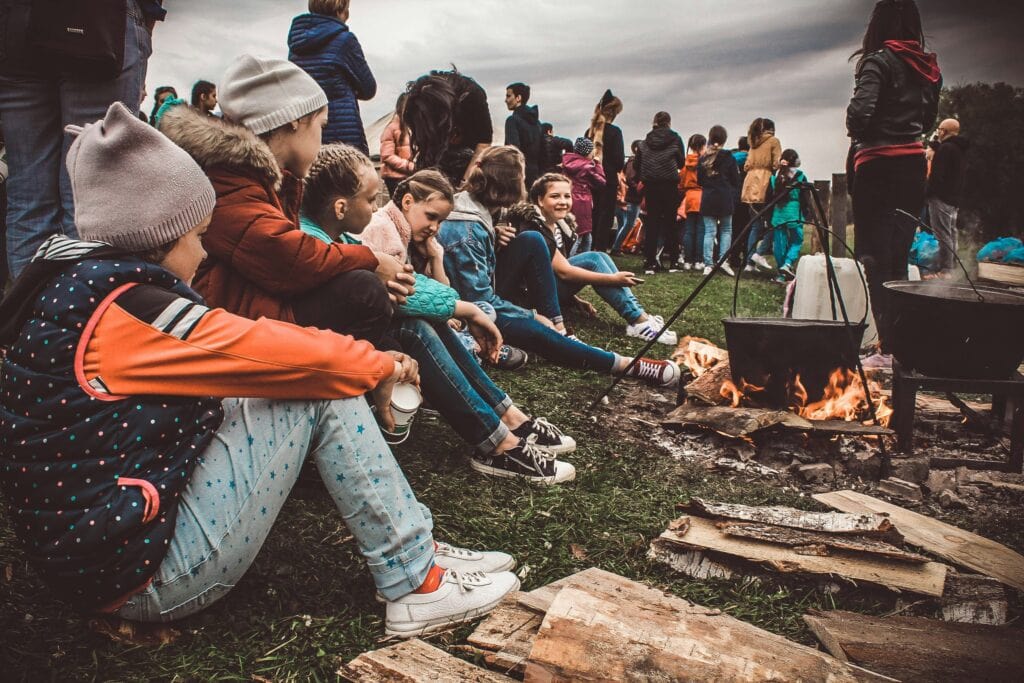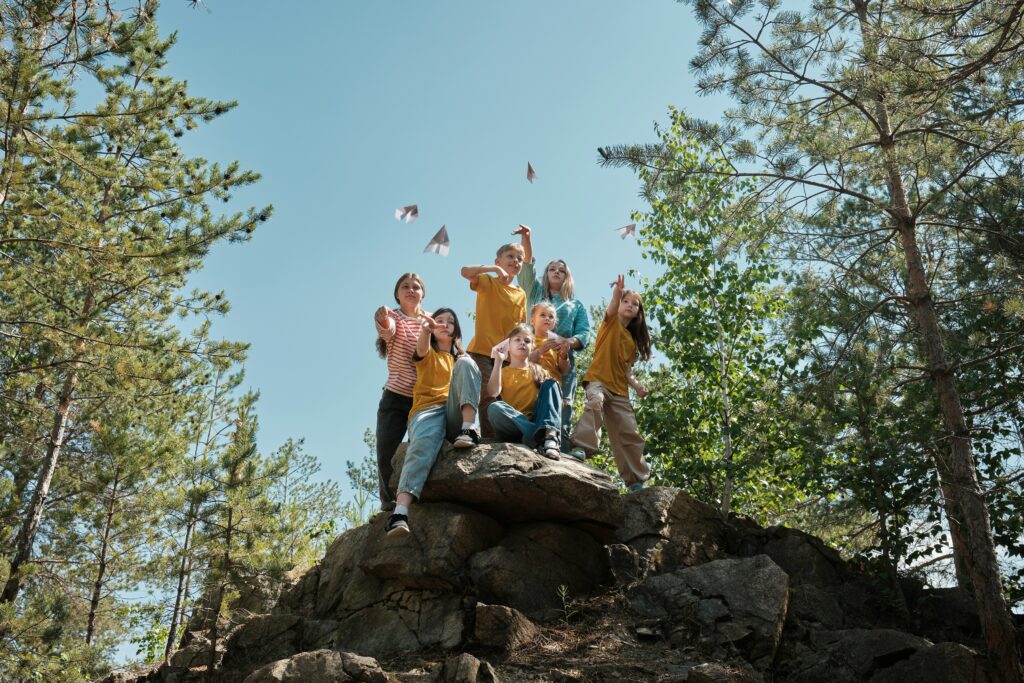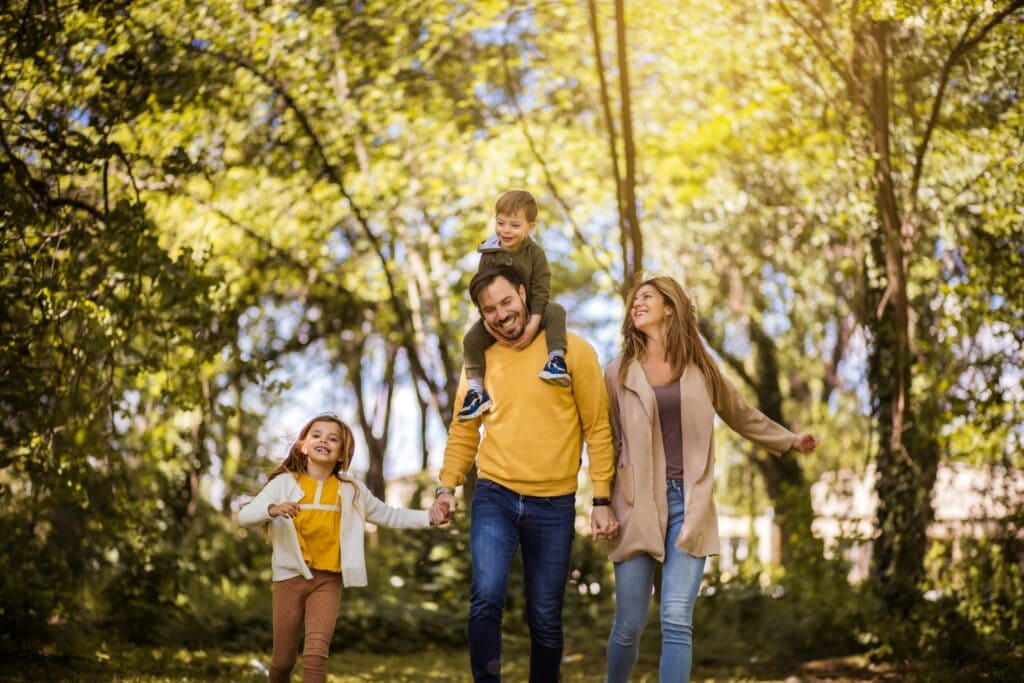
A camp’s culture doesn’t happen overnight. It grows through shared experiences, simple traditions, and the stories that campers and staff carry with them year after year.
Whether you run a summer camp, a faith-based retreat, or a youth program, these building blocks create belonging, forge identity, and spark that unmistakable “this feels like home” experience.
Why Camp Culture Matters
Culture is the shared set of values, traditions, and unwritten rules that define how a community thinks, acts, and feels together. Said another way, culture is a collection the communal habits, intentional or not, that a group of people share in a given time and space.
When culture is healthy, campers feel safe and connected, and they come back. Staff stay for more than the paycheck because they find purpose. Parents notice a vibrant, welcoming environment, and trust grows.
Strong culture drives loyalty, shapes behavior, and attracts the right people who share your values. It becomes the foundation that supports everything else you do. These communal habits aren’t built overnight… so how are they built, and how long does it take?
Often, the small, repeated moments shape culture more than the big events. The daily rituals matter as much as the grand ceremonies.
Traditions & Rituals: The Rhythm of Belonging
Think of traditions and rituals as the heartbeat of your camp. They bring rhythm, comfort, and consistency to the experience. Morning flag ceremonies, cabin chants on the walk to lunch, the first swim across the lake, or campfire stories passed down over generations all create touchstones that campers remember long after they leave.
Traditions are what we do together over time to stay connected, and rituals are how we do specific, sometimes symbolic actions that create moments of meaning. They can range from silly to serious, but over time, the values they are meant to express cultivate cultural meaning.
Not all customs age well, though. Keep an eye out for rituals that exclude or alienate. As your community grows, your traditions should grow with it. Consider simple additions like gratitude circles, buddy beads for first-time campers, or celebrations that reflect your camp’s diversity.
Storytelling: The Heart of Identity
At camp, stories do what no handbook can: They carry your history, celebrate your heroes, and pass down your values. While a staff handbook lists out all the rules, camp leaders use storytelling during staff training to give context and build buy-in around shared expectations.
Stories are the art of arranging the details of experiences into an order that creates understanding. They go beyond explaining what to do and explain who to be. They are at the heart of shaping healthy habits – culture – around shared values like growth and belonging.
Encourage campers and staff to share their own stories. When they tell their camp stories, they help shape the culture for the next generation. These personal narratives become part of your camp’s living history.
Leadership Sets the Tone
Culture starts at the top. Directors and senior staff set the tone through daily actions…or inactions. When leaders consistently model energy, kindness, and curiosity, those values ripple through the entire camp. If you’re a leader, go beyond the static words often used to describe a value and spend time thinking and advocating for the actions of that value.
Leadership also means handing over the mic. Empower young staff to carry traditions, lead rituals, and model the culture so that it happens even when you’re not around. If your staff can’t clearly explain what makes your camp culture special, spend more time on storytelling and intentional leadership development.
Evolving with Intention
Culture grows with your camp. Ask regularly which traditions still spark joy and which feel outdated or exclusive. Invite input from campers, staff, and parents. A culture shaped by the whole community feels stronger.
Don’t fear retiring old traditions that no longer serve your core purpose. It shows your camp is listening, growing, and staying relevant. Don’t be afraid to start new rituals, but make sure that they deliver the experience and convey the meaning you hope they do.
Culture doesn’t happen by accident. It takes care, consistency, and a willingness to evolve. When done well, it creates the kind of camp that feels like home, season after season.



